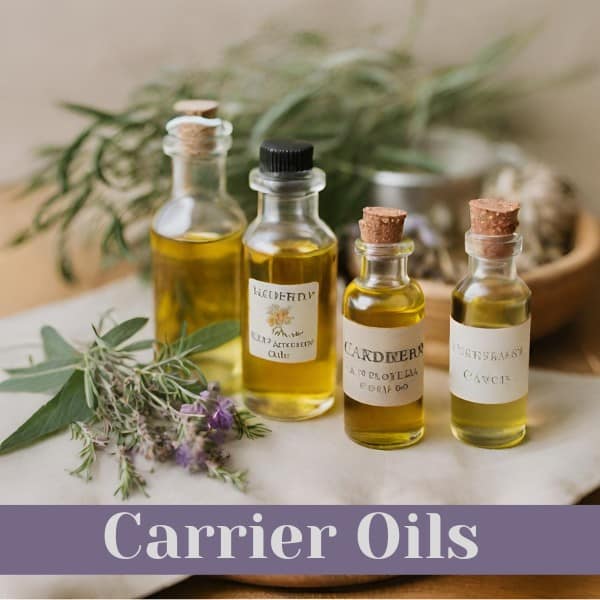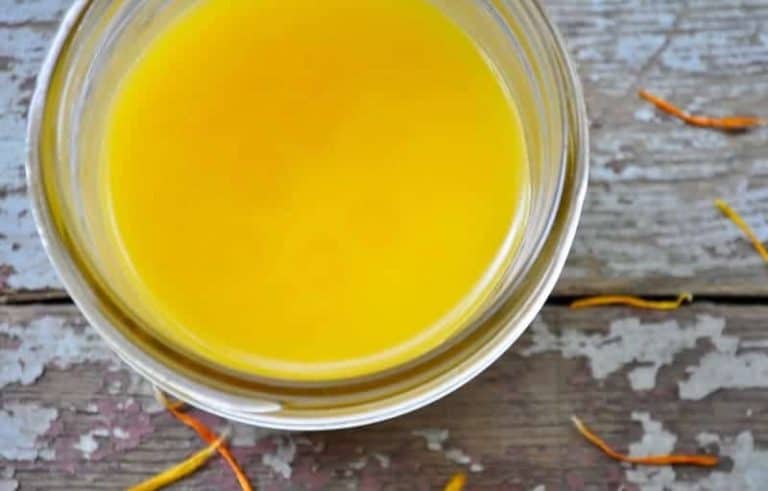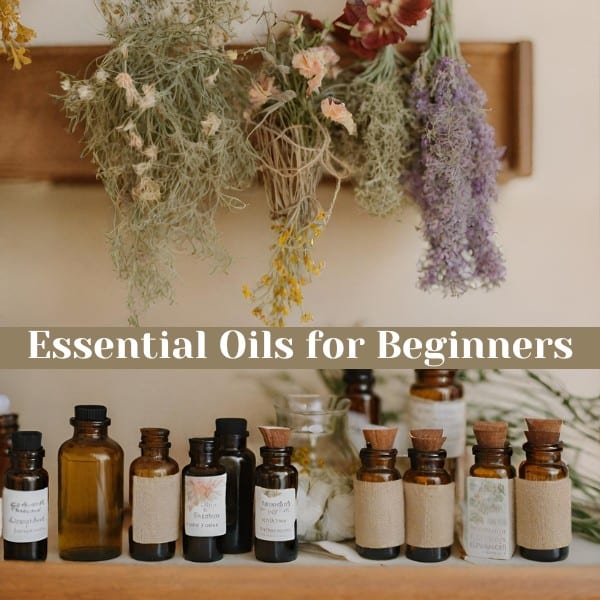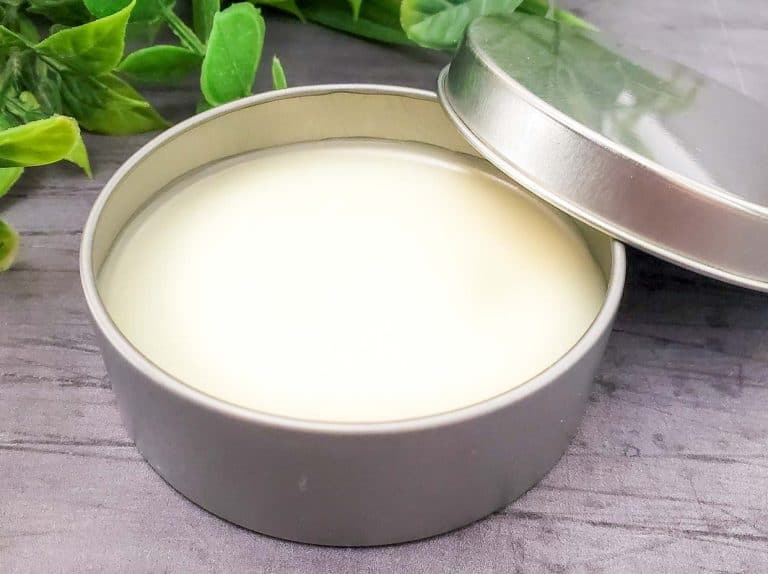Carrier Oils
Carrier oils are plant-based oils that dilute essential oils for safe use in topical application. Learn about common carrier oils like coconut, jojoba, and almond oil, their benefits, and tips for using them.

Essential oils are highly concentrated, and using them directly on the skin can cause severe irritation. Carrier oils dilute essential oils and make them safe for topical use.
They also help to spread the essential oil over a larger area, making it more effective. Carrier oils are typically plant-based oils rich in fatty acids, vitamins and other beneficial nutrients for the skin.
Types of carrier oils
Carrier oils are extracted from the fatty parts of plants. They have their own unique properties and benefits that can enhance the effects of essential oils. Here are some of the most popular types of carrier oils and their benefits.
- Fractionated coconut oil- Fractionated coconut oil is a popular carrier oil due to its long shelf life, lightweight texture and lack of scent. It is made by separating fatty acids from coconut oil, leaving only the medium-chain triglycerides behind. It is also known as MCT oil. Fractionated coconut oil is high in saturated fats, making it an excellent skin moisturizer. It is also antibacterial and antifungal, making it a great choice for acne-prone skin.
- Jojoba oil- Jojoba oil is a liquid wax extracted from the seeds of the jojoba plant. It is similar in composition to the sebum produced by our skin, which makes it an excellent carrier oil for topical application. Jojoba oil is also high in vitamin E, which has antioxidant properties. It is non-comedogenic, which means it won’t clog pores, making it an excellent choice for sensitive, oily or acne-prone skin.
- Argan oil- Argan oil is a luxurious carrier oil extracted from the argan tree’s kernels, which is native to Morocco. It is high in vitamin E and antioxidants, which can help protect the skin from sun damage and pollutants. Argan oil also has anti-inflammatory properties, which can help soothe sore or irritated skin. It is an excellent choice for dry or aging skin.
- Sweet almond oil- Sweet almond oil is a carrier oil extracted from the kernels of sweet almonds. It is rich in fatty acids, which can help improve the skin’s barrier function. It is a versatile carrier oil often used for massage due to its lightweight texture and mild, nutty scent.
Additionally
One important note on carrier oils is that the correct one can help you rebuild your skin’s moisture barrier. If you feel like your skin is always dry and dull, a good healthy oil can help you get back to fresh, younger-looking, moisturized skin.
In addition to these carrier oils, there are many others that can be used for varying purposes. Olive oil, avocado oil, rosehip oil, apricot kernel oil, grapeseed oil, sesame oil and sunflower oil are other great carrier oil options.
When selecting a carrier oil, it is essential to consider your skin type and desired effects. If you live in Alaska like I do, choosing a carrier oil that is highly moisturizing and full of fatty acids such as sweet almond oil. For someone in a hot dry climate a better oil might be a lighter jojoba oil that also has light skin protection built-in.
“One of my go-to carrier oils is fractionated coconut oil. Not only is it light and fragrance-free, but this versatile oil helps from head to toe. I use it to tame unruly hair, remove eye makeup and moisturize dry skin.”
— Sage Scott, Sage Alpha Gal
Uses and benefits of Carrier Oils
Carrier oils are versatile and can be used in a variety of ways. Here are some of the most popular uses for carrier oils.
Diluting essential oils: This is one of the most important uses of carrier oils is to act as a base for essential oils, reducing the risk of skin irritation and helping to distribute them around the skin. This is especially helpful in products like beard oil or ear oil.
Aromatherapy: Carrier oils are also used in aromatherapy to dilute essential oils for topical application and can also be used in creating wax melts for aromatic diffusion. They have a neutral aroma and can be used to create custom blends for stress relief and relaxation.
Massage: Carrier oils are commonly used in massage to provide a smooth, gliding application on the skin. It is also used to dilute essential oils for safe skin use in aromatherapeutic massage.
Baths: Adding carrier oils to directly to warm bath water can help moisturize the skin. Carrier oils can also be used in homemade bath products to help nourish and protect the skin.
Homemade lotions and body butters: Carrier oils are often used as a base for creating lotions, creams and whipped body butter, providing skin-soothing properties. Carrier oils are often combined with beeswax for this purpose.
Natural makeup: Carrier oils can be used as a base for creating homemade natural makeup products, such as lip balm. This offers a toxin-free alternative to conventional makeup.
“My daughters and I love using almond oil in our homemade soaps, lotions and shampoo bars. It’s light with a very subtle fragrance and feels wonderful on the skin.”
— Sarita Harbour, An Off Grid Life
Safety and other considerations
When using carrier oils, you want to keep a few things in mind. Here are some special considerations to be aware of.
Allergy Concerns
Carrier oils are generally considered safe. It’s important to understand that some people may experience allergic reactions to certain oils.
To minimize the risk of an allergic reaction:
- Perform a patch test before using a new carrier oil.
- Apply a small amount of oil to a small area of your skin, and wait 24 hours to see if any adverse reactions occur.
- Discontinue use immediately if you experience redness, itching or other symptoms.
How to Store
Almost all oils can go rancid over time. That causes them to lose their benefits and even become harmful. You’ll know if you’ve got a rancid oil on your hands by the smell, it will be rank. Be sure to smell carrier oils before using to ensure they’re good to use.
To extend the shelf life of carrier oils, store them in a cool, dry place away from direct sunlight. Dark bottles or jars are helpful for this as well. The coolest, darkest storage will extend the life of your carrier oil.
Comedogenic ratings
What are comedogenic ratings for carrier oils? These ratings indicate how likely they are to clog pores and cause acne. Oils with a high comedogenic rating are likelier to cause breakouts, while oils with a low comedogenic rating are less likely. Your skin, and whether it’s prone to breakouts and acne, is also important to choose a carrier oil. Even a low comedogenic oil such as grape seed or hemp seed can bother your skin if it’s susceptible to breaking out.






